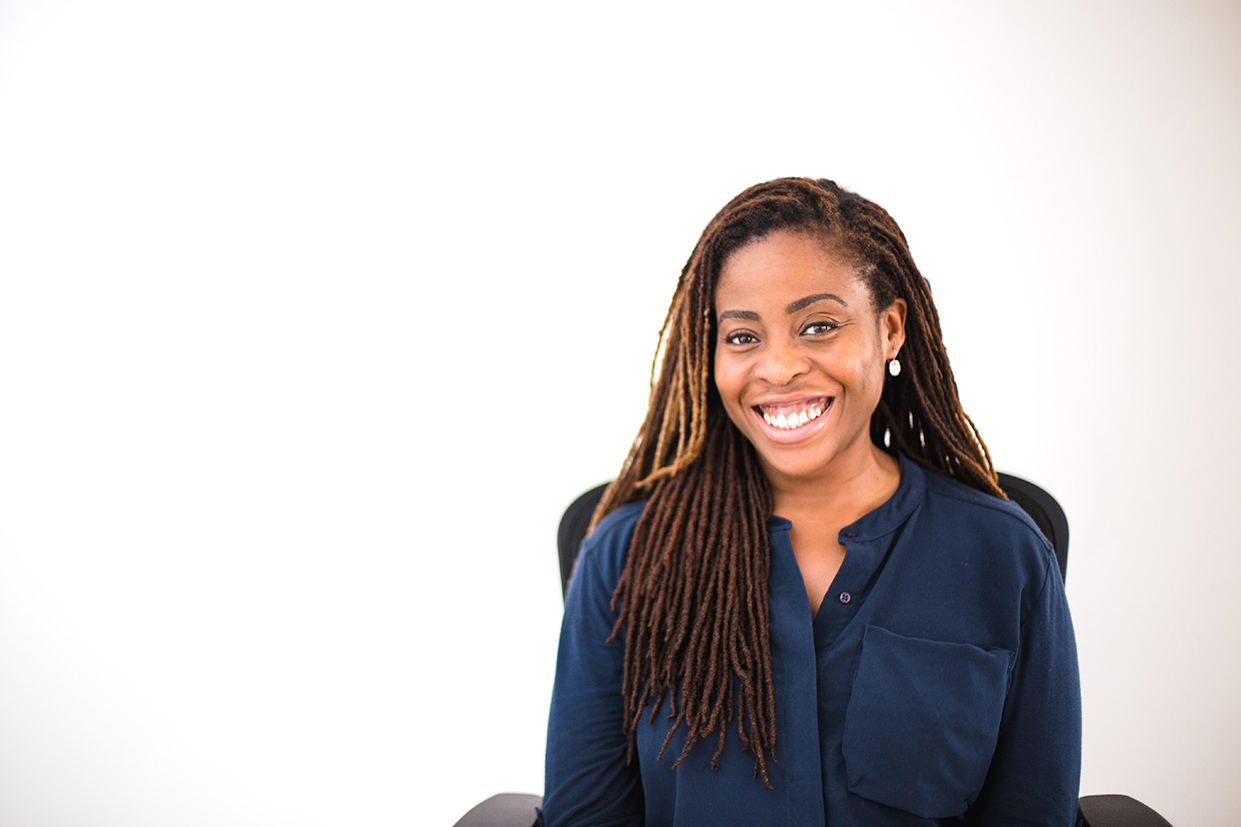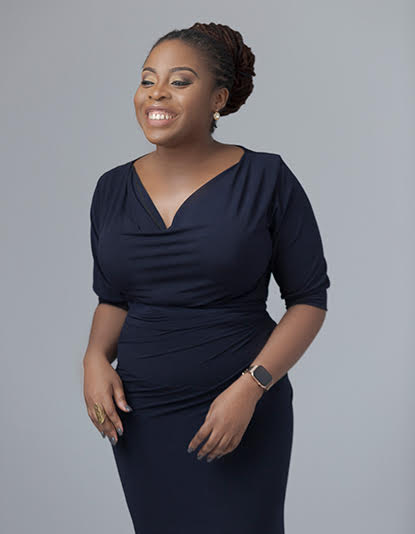Interview by Visual Collaborative
May 2019 7 min read

Toyin Oshinowo (PhD) is a seasoned Product Management professional with an evident passion for product development within the Nigerian Technology space. As a special feature in our Voyager interview series, we discuss her observations and insights navigating a male dominated space.
(VC) According to some tech media coverage the technology ecosystem in Nigeria seems to be shaping up at a good pace. Is it all hype or you would say this is an actuality
(Toyin) I would say it’s a measured reality. Nigeria is a melting pot of culture, design, technology and innovation. We are up to the challenge when it comes to using technology to solve pain points there isn’t a lack Nigerians creating solutions that are viable not only within Nigeria but across Africa. Take my company Fieldinsight, we wanted to solve the problem of limited/no visibility within the logistics industry. This is a ₦250 Billion industry with an estimated losses of ₦3.4 Trillion. We do this by providing collecting data by tracking and proof of delivery adjusted to a developing world environment which has limited data connectivity. My company is not unique and Nigeria is fast becoming home to many startups that are getting foreign investment and attention which is exciting.
Why do I say it’s measured? The engines behind what makes tech companies successful within the Nigerian techspace are flawed. This is probably because the speed at which these companies innovate are infinitely faster than that of the institutions that are supposed to govern them. Many startups turn to foreign investors because local investors are risk averse insisting on cannibalising startups in addition to unrealistic returns on investment. It would be interesting to see how the ecosystem will evolve in the next couple of years.
There were micro-aggressions by way of social interactions with my fellow students and lecturers but nothing prepared me for the none-subtle misogyny I have encountered within the African space.
(VC) As a woman founder you go into a space where the subtlety of misogyny dominates the technology space. Does this fact get understated or its all part of the package of the commerce environment?
(Toyin) I think the word subtlety tickles me – allow me to put some context. I studied as a Computer Systems Engineer at Warwick University in the United Kingdom and I have always been the “odd” woman in a group of men. The same occurred during my Doctorate at the same university as I was the only female to graduate in my department in my year. There were micro-aggressions by way of social interactions with my fellow students and lecturers but nothing prepared me for the none-subtle misogyny I have encountered within the African space. But Attitudes are changing. This year I was profiled as one of 50 women in Tech by TechCabal who are looking to change the narrative of women in tech.
Given my experiences I feel it’s important to give back and inspire young women starting out in the industry either as young founders, graduates or students. I’ve given talks to Google Women Tech makers and also the Engineering Ladies Society at University of Lagos, in addition to working closely with the Eden Venture Group which is also looking to change the narrative towards women empowerment.

Photo courtesy of Toyin Oshinowo
(VC) In a TEDx Lagos talk, Futurist Ade Olufeko showcased a digital painting with data that predicts patterns and statistics and suggested that it would become the norm through many kinds of mediums in policy making to structure society in the future. Do you agree with his sentiments of data science or is it too early to make this kind of claim?
(Toyin) In my world “Data is King (or Queen)”. I am also a believer of the design thinking methodology. I don’t think its too early to make this claim but I do think that the work needed to substantiate this claim needs to start now. I’m personally invested in this because this is what my company does – we collect structured data within the field. It removes ego or emotions from the decision making process.
(VC) Does living with sickle cell put you in a constant state of self awareness especially in a place like Lagos Nigeria where the health industry is undergoing major restructuring?
(Toyin) Sickle Cell Anemia is a genetic condition that affects a person’s red blood cells. Typical red blood cells are nice and round – but the red blood cells of a person with sickle in certain circumstances turn into the shape of a sickle. Due to this shape the blood breaks down more frequently and gets stuck in vessels – the major side effect of this are episodes of earth shattering pain otherwise known as crisis episodes. Other chronic side effects include chronic fatigue, with repeated and random infections etc. It’s almost impossible to predict when a crisis will hit – and when it does it can take you out for a day or even a month. This means that on a day-to-day basis a person with Sickle lives with a certain degree of unpredictability.
Unfortunately my experience of living with this Sickle and Nigerian Health industry has not been a pleasant experience. I have Sickle Beta Thalassemia (SBThal) which is a rarer form of Sickle Cell within this region. My type of Sickle is not tested within the Federal or State government hospitals which made it difficult when I needed to prove my status to the government for my National Youth Service.
I’ve also had really bad experiences with Nigerian Doctors who do not understand pain management and its effect if poorly managed for people who live with the disease. Another issue I have is the fact that Sickle Cell in Nigeria is not considered a disability I find baffling! Sadly because of these issues (the above not being exhaustive) I do not manage my condition in Nigeria. It’s not all doom and gloom through – there are people who live with Sickle who are giving back and ensuring that standards are improved for Sicklers within Nigeria. The Sickle Cell Advocacy & Management Initiative works tirelessly to educate people on Sickle Cell and also support those living with the disease.
(VC) In your quiet or noisy moments how do you get inspired? What makes you create the work you do. Do you seek religion or get psychological like others in the creative or tech industry for inspiration?
(Toyin) I like it noisy! I guess because my work (Product Management) involves bring order to chaos. I love modeling workflows, designing tech solutions by first defining an initial hypothesis and proving/disproving it in the field. I’m very pragmatic so my inspiration comes from three simple questions; Who is the customer? What is the problem/pain point? What is the value proposition – would someone be willing to pay for this?
Africa is set to benefit the most from technology advancements so its important that we are not afraid of change
(VC) Some mention the renaissance as an art period they admire. If you can time warp back to any era what time would it be and why?
(Toyin) That would be an absolute nightmare! I am a millennial who lives by her smart phone and mobile apps [Toyin smiles].
(VC) At this stage of your professional career and accomplishments, If you could collaborate with any other brand or public figure in business who would it be and why?
(Toyin) Honestly I can’t think of anyone in particular right now – the tech industry I’m in right now is full of people I respect and admire.
(VC) Transhumanism could be a downside of data and its in efficiency. In a mixed bag of adoption, cultures might get overridden and superstitions expelled. Some may argue that free speech in a third world state would be in jeopardy. From your vantage point what benefits could come from big-data despite all of these concerns?
(Toyin) Earlier this year U.S. Rep. Alexandria Ocasio-Cortez highlighted the point that AI can be racist and she is totally right. If the data is biased solely on how it is created/collected the intelligence created will be biased so this is something that we all need to be mindful of. One way forward is to ensure that we as Africans build our own AI structures based on our data. Google has moved forward with this initiative with building its first AI lab in Ghana in addition to AI research into African languages. Africa is set to benefit the most from technology advancements so its important that we are not afraid of change but we need to ensure these enhancements work within the confines of policies and structure.